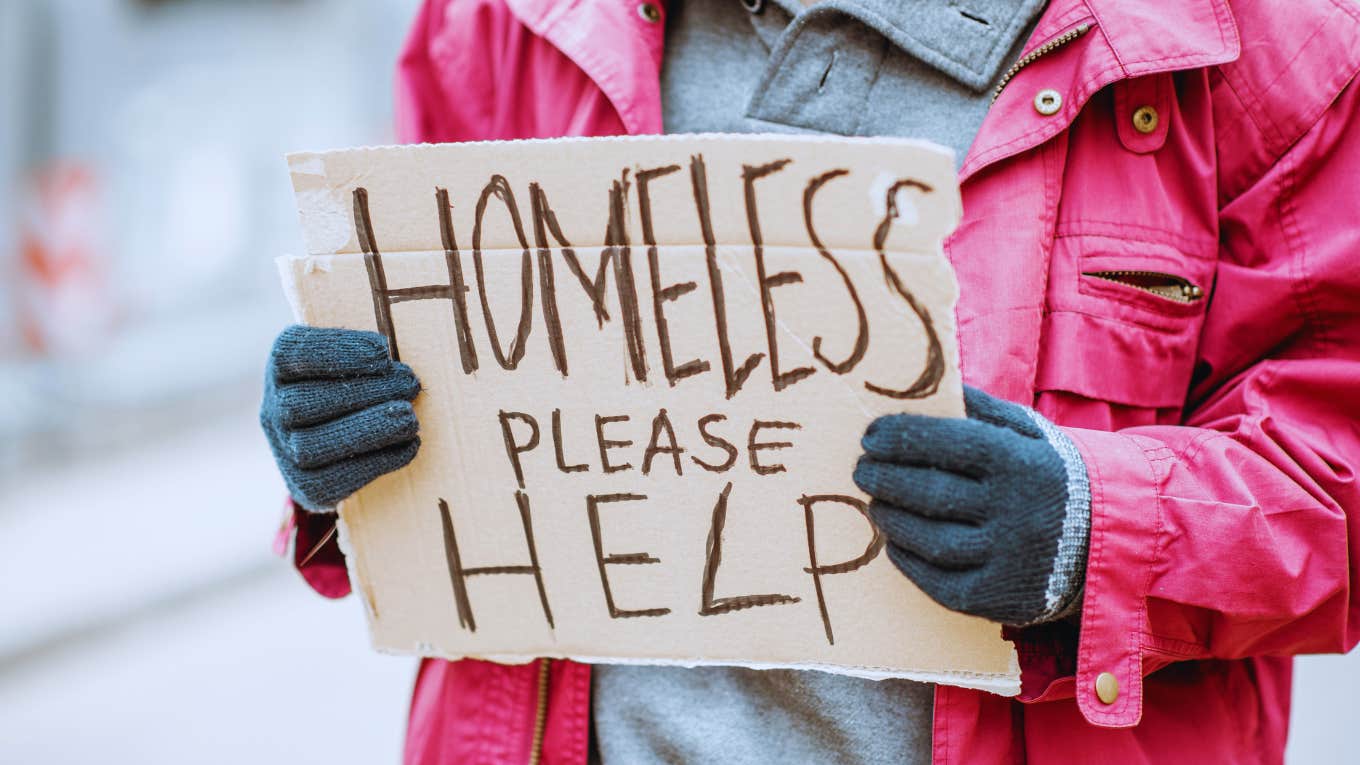Homeless 'Roof Ninja' Found Living Inside A Grocery Store's Sign With A Computer, Printer & Coffee Maker For An Entire Year
The woman was found after workers noticed an extension cord coming through the ceiling.
 RossHelen / Canva Pro
RossHelen / Canva Pro The United States has one of the worst homelessness problems in the world and one of the most expensive housing markets, too.
In one Michigan city, those two issues seem to have converged in a rather astonishing way that has left even local authorities and homeless charities slack-jawed.
A homeless woman was discovered living inside a grocery store's sign in Midland, Michigan.
"It’s a story that makes you scratch your head, just somebody living up in a sign," Officer Brennon Warren of the Midland Police Department told the Associated Press of the 34-year-old woman.
She was discovered living inside the gable-like structure of the Family Fare supermarket's sign atop the building, where she had been living for about a year.
The home she created inside the grocery store's sign included a Keurig, desk, computer, printer, and even houseplants.
In a way, the woman's hideaway perfectly explains why many advocates call for the term "homeless" to be retired in favor of "unhoused." This woman may not have owned a house, but she certainly made a kind of home inside the sign.
“There was some flooring that was laid down. A mini-desk,” Officer Warren said, along with “her clothing. A Keurig coffee maker. A printer and a computer — things you’d have in your home.” She also had a pantry for food and even a houseplant.
The woman told authorities after being discovered that she had a job but was unable to afford housing. She'd been living above the store long enough that she'd become known to the staff.
"People would see her from time to time, and then all of a sudden, she would vanish," a spokesperson for the store's parent company told USA Today. "No one really knew where she went, but no one ever indicated or thought that she would be up on top of the roof."
She was discovered when workers found an extension cord she'd run into the store.
Despite the obvious care and effort she'd put into her makeshift home, the woman did not put up any kind of resistance when she was discovered. When Midland Police came to the sign area, "she came right to the door and basically said, 'Don't worry, I'm leaving,'" according to the spokesperson.
In some ways, the 'roof ninja's' story shouldn't be surprising — Midland's average rent has nearly doubled in the last three years.
Midland is not a big place. It's home to just over 40,000 people, many of whom work for the giant Dow Chemical plant that has anchored the area for decades. But like everywhere else in the country, it has seen the cost of living skyrocket in recent years, even more so than some much more cosmopolitan places.
According to an analysis by Rent.com, average rents nationally have risen nearly 22% since 2020. But in Midland, they've nearly doubled in just the last three years from $750 to $1450, in part because a catastrophic 2020 dam failure caused floods that wiped out a large portion of the area's housing supply.
An investigation ruled that the dam failure, like so much that goes wrong with American infrastructure, was entirely preventable and blamed it on poor oversight of its maintenance.
Though it's not necessarily provable, it's easy to draw a line from that dam failure directly to this woman being forced to live inside a grocery store sign despite being gainfully employed. This, it seems, is just the way things are in the wealthiest country on Earth, a nation with the second-highest lifetime homelessness rate in the world.
When offered, the woman refused any assistance for her situation, so Family Fare donated $10,000 to a local homeless charity, Midland's Open Door, which wrote in a Facebook post that a large number of people in the area are currently "facing hunger and homelessness for the very first time."
Perhaps this woman was one of them, and accepting help felt like too much of a loss of dignity.
Americans are often all too eager to dismiss the unhoused as just lazy people who don't want to work or addicts who aren't willing to clean up their lives. Perhaps a story like this — about a person with a job who still can't even begin to make ends meet— will change people's minds.
Let's hope so because our leaders have made it clear they can't be bothered to do anything to prevent situations like these —situations most of us are far closer to than we realize.
The sooner we get motivated to start taking better care of each other, the better.
John Sundholm is a news and entertainment writer who covers pop culture, social justice, and human interest topics.

